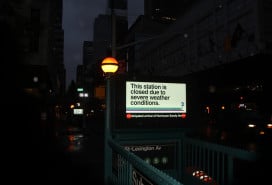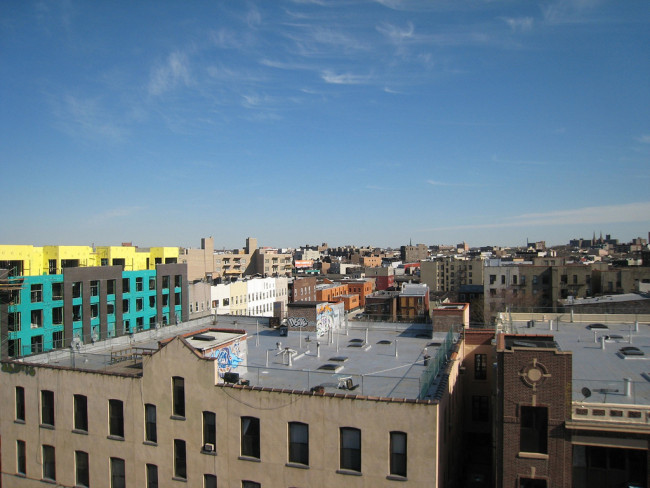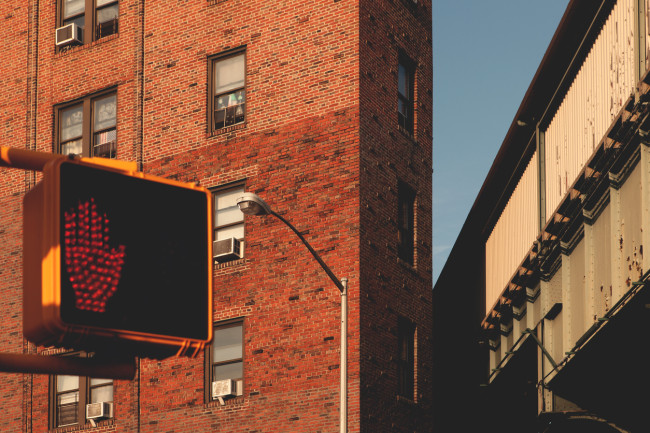How long do you have to own in NYC for your investment to be worth it?

It's an old saw at this point that New York City real estate is one of the safest investments one can possibly make. (In fact, this reasoning is often used to explain the popularity of our city's market with foreign buyers looking for places to stash their cash.) And in large part, it's true: Our market has a history of trending upwards, and tends to be less volatile than real estate in other cities.
But buying an apartment is a lot more complicated than snapping up some stocks or stashing cash in an index fund, and it can take a number of years before potential price appreciation on your home outweighs the upfront cash you laid out in order to buy it. (In the New York Times' "buy versus rent" calculator, one of the first questions is how long you plan to stay in your apartment, for precisely this reason.)
[This article was originally published in April 2017.]
And on top of the usual fluctuations over the years, the city's housing market is also wildly variable by neighborhood, apartment type, and size, among other things. "One thing that really infuriates me is when the housing market gets distilled into one thing: It's up! It's down! It's a buyer's market! It's a seller's market!" says Jonathan Miller, president and CEO of the appraisal firm Miller Samuel. "But in reality, it's very fragmented."
This point was most recently demonstrated by a map from Bloomberg and StreetEasy, which tracked prices and appreciation neighborhood by neighborhood, including the so-called "tipping point" representing "the time it would take for the accumulated costs of renting a home to equal or exceed the cost of buying and owning a comparably size home in the same area."
Unsurprisingly, this number varied wildly: In ultra-expensive Soho, it would actually take 31 years to recoup costs. In Morningside Heights—where prices are lower than the rest of the borough, but rapidly on the rise—it would take just 2.8 years for your purchase to pay off.
Add to that the fact that even when the city's property market is on a rapid ascent (as it has been for the past decade), unless you happen to buy into the Next Hot Neighborhood at exactly the right time, your money will likely perform better in the stock market. Per a recent Wall Street Journal analysis, over the last three decades, the S&P 500 outpaced the growth of the Manhattan market by 25 percent. And while the average price of a Manhattan apartment rose by 52 percent in the past decade, those numbers are heavily skewed by luxury new developments; Manhattan co-op prices only rose by 25 percent.
So if it's steady investment you're looking for, the better bet may be something like index funds, which, according to the finance website The Simple Dollar, are generally considered to generate an annual return of around seven percent. "The question should really be more, where do you want to live? And investment is on the side," says Miller. "It depends on where your finances are, what your employment is, and how long you plan to be in this market."
Also important is where you will be staying put. "If you think you're going to be moving out of state in a year, you probably shouldn't be buying no matter what you make," Miller adds. "But for some people it still makes sense—maybe they want to keep it as a pied-a-terre."
And while you can (and should) certainly consider your purchase with an eye to future resale values—for instance, an apartment in an elevator building will be much easier to re-sell than a walk-up—ultimately an apartment purchase is about far more than maxing out your potential investment. "It's a personal decision," says Miller. "A lot of times it's not financial, it's for lifestyle, as opposed to just the hard dollar." And if getting the absolute maximum return out of your spare cash is the bigger priority, hey: There's always renting.
You Might Also Like





























